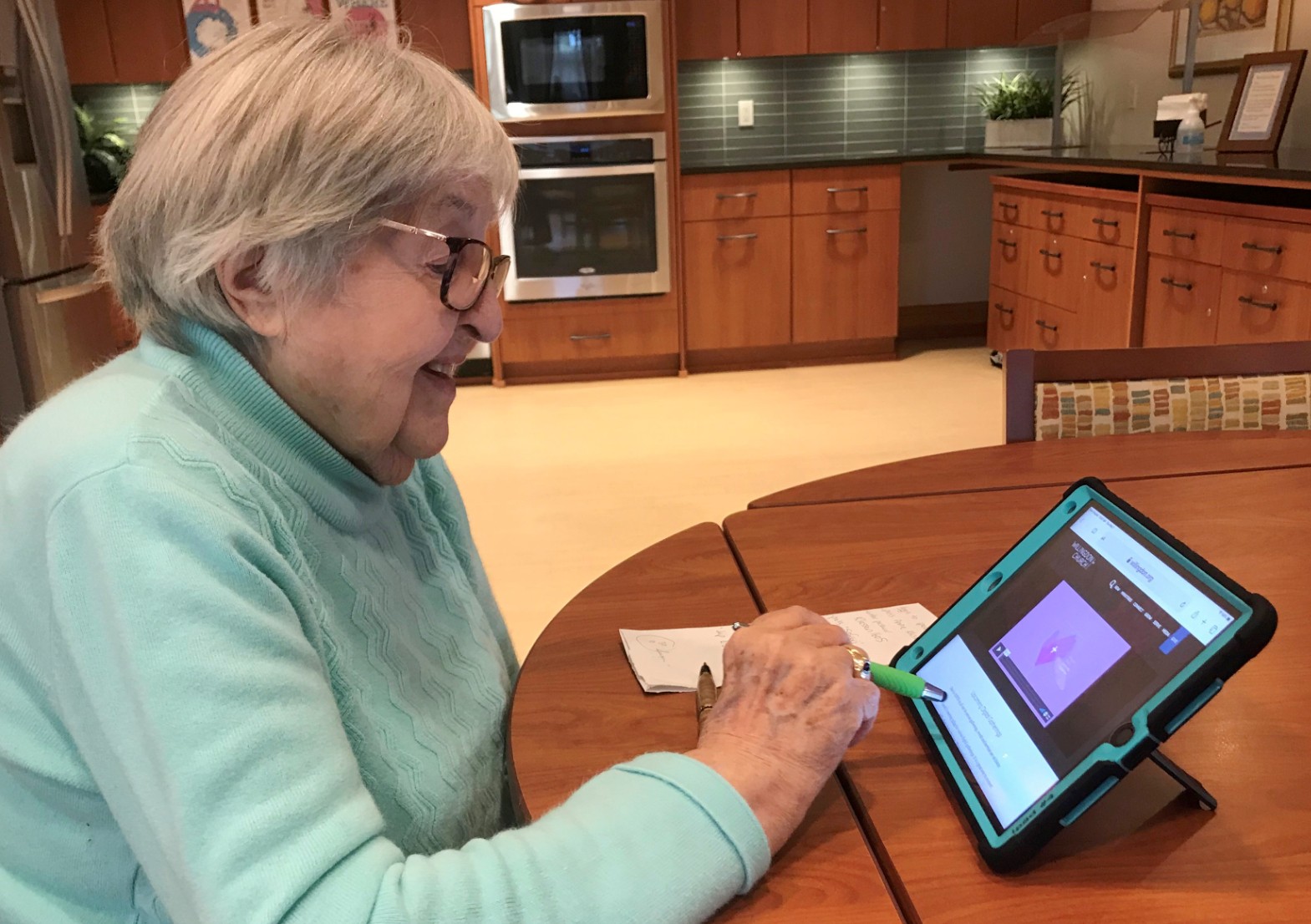Financial Management Tips for Seniors During Challenging Times
in COVID - 19 NewsWritten by PARC Retirement Living

While life on the homefront has never been so quiet or cloistered, the financial landscape has taken a pounding in the COVID-19 thunderstorm. Markets fell around the world, causing investors of all stripes to shudder and prompting older adults to ask: “How might I manage my finances to best withstand a global crisis, now and going forward?”
For advice and a calming perspective, PARC Retirement Living recently reached out to Raphael Ambrozewicz at BlueShore Financial in North Vancouver. A financial advisor with more than 15 years’ experience, Raphael is highly familiar with addressing seniors’ financial concerns – some 75 per cent of his clients are aged 60 years and older.

An evolving financial plan
In both good and bad times, says Raphael, astute money management begins with a solid financial plan. It’s a blueprint of where you are today, what you’d like to have for income streams and your goals down the road. A plan brings everything together, including retirement, estate planning, assets, liabilities and taxation.
“You need a financial plan, no question about it,” he says, adding that his role includes combining clients’ financial and personal data during retirement, and setting realistic goals for both the short and long term.
Equally important, continues Raphael, is to review your plan every six months, especially as you age, to track its progress and account for life circumstances like adult children, charitable gifting and inheritance. “And right now, your financial plan, if you have one, is being put to the test. How well has it been planned? Could we have accounted for COVID-19? No. But now it’s time to review your financial plan, particularly the investment component if you have money in the market.”

Ask about market opportunities
In retirement, your goals, objectives and risk tolerance likely change. As such, explains Raphael, your portfolio needs to be constantly rebalanced, with certain monies becoming more conservative with respect to withdrawal purposes. While he reviews asset allocation with clients twice a year, he notes that keeping in touch with a financial advisor is particularly important during a market shakeup.
“If you’re not hearing from your advisor about suggestions, recommendations, or they’re not at least putting you at ease, then shop the market, without a doubt . . . Ask, what can we do better, what can we do differently? It will put them on notice to work just a little bit harder, to pay a little more attention to your portfolio.”

Stay connected and engaged
Seniors embracing technology via a laptop or tablet, says Raphael, can communicate remotely with their advisor post-COVID-19 and during future crises that call for self-isolation.
“In most online conversations, the advisor emails you a link, you click on it, and that’s all you have to do. And that makes it much more personal than a telephone call, when they can see my face, and I can see their face.” Portfolios can be viewed in the same way, he adds, with seniors being able to see exactly what their advisor is presenting.
For older adults who find the investment world a bit daunting, with its mutual funds, custom-made portfolios, ETFs and other assorted options, it can be helpful to bring a family member or friend to an online or sanitary in-office visit with your financial advisor. “A trusted companion can provide guidance and ask different questions, like how much are you paying in fees? There are many different ways to lower the cost of a portfolio, but if you don’t ask, you’re not going to get it.”

Increase your liquidity
Retired seniors could experience a double-edged sword during a crisis, withdrawing money from their portfolio while its value simultaneously decreases in a volatile market. This is particularly noticeable for those with a RRIF (Registered Retirement Income Fund), as they’re required to start withdrawing after age 71. To soften the blow, Raphael recommends increasing your liquidity by creating what he calls a cash wedge.
“If you set aside one to two payments to satisfy your annual RRIF withdrawal, that money can be parked in a cashable term deposit. So you know that your income is covered for the next one or two years. It’s completely risk free. You then have a buffer of money set aside, to let your portfolio recover in the event of a pandemic or other unforeseen global circumstance.”
It’s also a good idea, says Raphael, to inquire about government relief during challenging financial times (see below). This year, for example, the government has lowered the minimum RRIF withdrawal by 25 per cent. “That’s mostly applicable to clients with excess cash flow, who typically don’t need money from the RRIF for ongoing living expenses. But if you can take 25 per cent less from your portfolio that’s going down, that’s a good strategy to have.”

Look forward to market recovery
It all comes back to having a financial plan, says Raphael, adding that the worst a client can do during turbulent times is to have a knee-jerk reaction and cash out. For example, while investors saw their assets drop 20 to 30 per cent during the 2008-2009 financial crisis (similar to now), a well-balanced and diversified investment portfolio – following a regularly reviewed financial plan – fully recovered in 18 months.
Today, predictions and statistical data point to a much faster recovery in the market, owing to the fact that governments and federal banks have learned from the previous crisis and are addressing possible deflation. “Typically we can see a big drop and then we can see a big and swift recovery. Like a ‘v’ shape if you’re looking at a graph,” says Raphael. “So cool head prevails, go back to your financial advisor and get an assessment.”
While the real estate market should also recover, says Raphael, those planning to sell their home prior to COVID-19 should still do so now rather than wait.
“If you were willing to sell, you probably have reached that conclusion that it’s the right thing for you to do . . . yes, you may wait a year or two to possibly gain greater dollars, but in my experience, it won’t make or break your retirement living.”
–Raphael Ambrozewicz, BlueShore Financial
COVID-19 financial aid for seniors
In addition to the reduced RRIF withdrawal noted above, older adults (including those who are/were working) might also be eligible for the following government supports:
- One-time $500 benefit;
- Canada Emergency Response Benefit (CERB);
- B.C. Emergency Benefit for Workers.
Thinking about selling your home and moving into a retirement community? PARC Retirement Living offers a SECURE FUTURE® program that caps rent increases for the next four years. Contact us for more information.
The views and opinions expressed in this article belong to a third party financial advisor and are not associated with the opinions of PARC Retirement Living. Such information is designed for educational and informational purposes only and does not constitute as investment advice.

